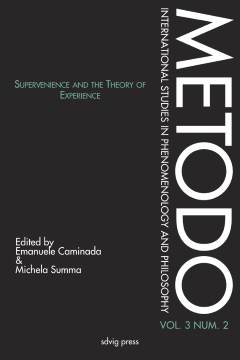Repository | Journal | Volume | Articles

(2015) Metodo 3 (2).
On the boundaries of cognition
Against Adams and Aizawa's intracranialist thesis
Francesca Forlè
pp. 171-191
When it comes to the debate about the constitutive, supervenience basis for cognition and cognitive processes, two theoretical positions are often opposed to each other. The first is the intracranialist one, exemplified by Adams and Aizawa’s idea that cognition has its supervenience basis just within the boundaries of the brain. The second is the transcranialist one, exemplified by Noë’s and Clark and Chalmers’s theses that the constitutive basis of cognition and the mind can span the brain, the body and the environment. In this paper I want to maintain that Adams and Aizawa’s main intracranialist argument against transcranialism does not hold. In particular, I will try to argue that such an argument does not allow them neither to establish intracranialism nor to defeat transcranialism.
Publication details
Full citation:
Forlè, F. (2015). On the boundaries of cognition: Against Adams and Aizawa's intracranialist thesis. Metodo 3 (2), pp. 171-191.
This text is available for download in the following format(s)
This document is available at an external location. Please follow the link below. Hold the CTRL button to open the link in a new window.



